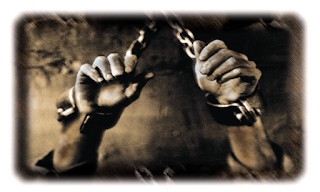Our world, and especially our media, are obsessed with outrage. If we are outraged, others pay attention to us and join in the outrage. We feel empowered when we are outraged, like we are making a difference. We are deceived.
We all know what outrage is. Outrage is defined as “an extremely strong reaction of anger, shock, or indignation.”
Let’s be outraged by the death of a wild animal. Let’s be outraged at the loss of our constitution. Let’s be outraged about killing babies and selling their body parts to the highest bidder.
And the silliest of them all: Let’s be outraged that people aren’t outraged by what gets me outraged.
With the obvious exception of the last one, most current targets for outrage are legitimate issues, legitimate problems. And they deserve legitimate solutions. They deserve change.
The problem that I have with outrage is that it betrays us. Outrage lies to us.
First, outrage betrays us by pretending to be an appropriate response. It convinces us somehow it is socially conscious to feel powerful emotions, to shout at others with those powerful and controlling emotions, and to post snarky statements and memes online. And if I manage to get others to join me in my powerful emotions and snarky online posts, I’ve improved the world. That’s not actually change, is it?
Outrage betrays us by substituting bitter words and indignant feelings for actual action. I’m not saying the feelings are inappropriate or that strong feelings are an error. I will say that if the words are focused on finding fault or pointing out foolishness, that yes, I do consider that to be inappropriate.
But the reality is that as satisfying as those emotions and those witty memes are, they don’t change anything. There will be people who kill animals, people who abrogate constitutional rights, and people who kill babies in order to sell their body parts for profit. My powerful emotions won’t change that.
Outrage also betrays us, because it’s a tool being used to manipulate us. Talk show hosts and producers intentionally manipulate their content in order to entice outrage in their audience, so that they’ll remain a loyal and participative audience. Advertisers use outrage to sell you their products. Political groups use outrage to persuade you to fund their groups, but even more, they use outrage to direct your attention away from the things that they don’t want you to see. It’s this last one that really irritates me.
Yes, it is legitimately sad that a lion was killed somewhere in Africa. It’s sadder that the hunter who killed him is the target of so much hatred that his life, his family and his business have been destroyed. Personally, I find it saddest of all that more people get more upset about a dead animal than about the murdering-babies-and-selling-their-body-parts industry. I don’t think they deserve the same attention.
But that’s the success of outrage: there are people who support the business of killing babies, and they don’t want to be the focus of this much media attention, because then their secret might get out and their billions of dollars of income might be reduced a little. So let’s focus everybody’s outrage on an animal that was literally on the other side of the planet, in a nation that none of us has ever visited, and that was hunted and killed legally (at least by local law), and let’s get everybody to focus on that dead cat so they’ll stop asking questions about our profitable baby-murdering business.
And it’s working, isn’t it? (And it’s working so well that I’ll bet I get people outraged over the lion who defend their outrage in the comments.)

I’m really tired of outrage. I’m tired of being emotionally wound up. I’m tired of being manipulated by the purveyors of outrage. I’m tired of having others tell me what I should feel strongly about. I’m tired of reading snarky and self-serving accusations and character assassinations of people who think differently than we think they should. I’m tired of having complex issues reduced to black-and-white caricatures so that they produce increased outrage.
Forgive me, but I won’t be participating in any outrage this week. Please don’t be offended that I won’t be joining you in yours.
“So what could we do instead of willingly volunteering to be emotionally manipulated? Is there an alternative?” I’m so glad you asked. Yes, there are a number of responses to things-that-are-wrong other than mere outrage.
The most important first step, I suppose, is to decide which issues are worth your attention. Don’t let the news media or social media tell you what you should care about. You decide. Cheat if you want: its OK to pray about this decision. It’s an important one, partly because this decision is the beginning of you taking the control of your emotional responses away from those who have delighted in controlling your emotions for you.
Second, I recommend sorting your emotions out. What are you actually feeling, and why does this issue trigger those emotions? Which emotions are actually yours, and which have been sold to you by others? And listen to the emotions: what are they suggesting needs to be done? I’m not saying “don’t feel emotions.” I am, however, saying “don’t stop with feeling emotions.”
I recommend asking the question, “Is this actually any of my business?” If it isn’t, then this isn’t the place for you to get involved, except perhaps by prayer. And some will argue that our prayer might be less effective in causes that are none of our business. But that’s none of my business, so I’ll move on.
And once you’ve decided that there is an issue worthy of your attention, then take action. Here I’d argue that prayer is an excellent first action to take, and that may be the extent of your action regarding this issue. If you go no further than to pray, then you can at least know that you’ve freed yourself from being manipulated by others for their own, possibly nefarious purposes, and you’ve brought God’s attention to the matter. That’s not insignificant at all.
And further action may be appropriate after you’ve prayed. I recommend considering where your greatest influence lies (Consider which of the
Seven Mountains your influence reaches the most) and take action in that arena. But take thoughtful action, don’t just write or shout outraged words: leaders of industry, government, culture know that outraged words are meaningless, and they are generally ignored, if they don’t respond with attempts to further manipulate us with outrage.
This is my attempt to respond in a method other than outrage to what appears to me to be an outrageous error in our culture. This is my attempt to bring some attention to the actual problem (the futility of being emotionally manipulated by people who don’t have your best interest in their minds) and to offer an alternative (choose what to be moved by, and how to move in response).
So now it’s your choice. You can be outraged at my suggestions. Or you can actually make a difference. It’s up to you.
 I disagree. Unconditional love absolutely DOES mean unconditional acceptance of the person you're loving. The two cannot be separated. Conditional acceptance is absolutely conditional love, which is to say, it’s not love at all. Maybe it’s manipulation or something, but it is NOT love.
I disagree. Unconditional love absolutely DOES mean unconditional acceptance of the person you're loving. The two cannot be separated. Conditional acceptance is absolutely conditional love, which is to say, it’s not love at all. Maybe it’s manipulation or something, but it is NOT love.  I disagree. Unconditional love absolutely DOES mean unconditional acceptance of the person you're loving. The two cannot be separated. Conditional acceptance is absolutely conditional love, which is to say, it’s not love at all. Maybe it’s manipulation or something, but it is NOT love.
I disagree. Unconditional love absolutely DOES mean unconditional acceptance of the person you're loving. The two cannot be separated. Conditional acceptance is absolutely conditional love, which is to say, it’s not love at all. Maybe it’s manipulation or something, but it is NOT love. 








